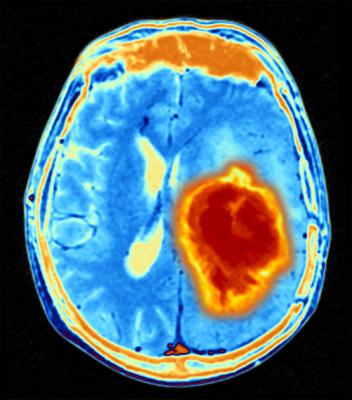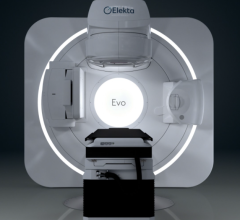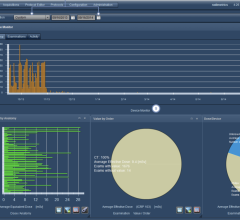
February 22, 2022 — Short bursts of radiation therapy dramatically enhanced the efficiency of targeting glioblastomas with natural nanoparticle-based immunotherapy, thus suppressing growth of the deadly tumor, inducing anti-tumor immunity and prolonging survival in animal models, a research team at Massachusetts General Hospital (MGH) has discovered. The combined strategy, described in ACS Nano, uses extracellular vesicles (EVs) to deliver the immunotherapeutic to the brain, bridging the blood-brain barrier and reversing immune suppression of both the tumor and the surrounding microenvironment.
“We showed that priming glioblastoma with a single burst of radiation results in the recruitment of immune cells to the tumor site and increases by nearly fivefold the uptake by the tumor and the microenvironment of therapeutic EVs,” said senior author Bakhos Tannous, PhD, director of the Experimental Therapeutics Unit in the Department of Neurology at MGH. “These EVs are loaded with immunotherapeutic small interfering RNA (siRNA), and when combined with radiation they significantly increase the activity of CD8+ cytotoxic T cells, halting tumor growth and increasing animal survival.”
Glioblastoma is the most common, deadliest and most treatment-resistant of cancers of the central nervous system, with a median survival of fewer than 15 months after standard-of-care surgery, chemotherapy and radiation therapy. While immune checkpoint blockade, a revolutionary new class of drugs that enables the body’s immune system to recognize and attack cancer cells, has produced responses in some cancers, glioblastoma has shown limited to no benefit. Scientists believe one reason may be the blood-brain barrier, composed of tightly packed cells in the brain’s capillaries that prevent medications from gaining entry to the brain. Another reason could be the profoundly immune suppressive environment characteristic of glioblastoma, and the narrow therapeutic window of dose escalation due to the potential for serious safety issues.
MGH researchers overcame these hurdles by using extracellular vesicles, which are secreted by cells in the body and are known to facilitate intercellular communications governing diverse processes, such as immune response. EVs have come into the scientific limelight recently through studies showing their efficacy in delivering therapeutics, as well as their ability to cross biologic barriers. “We developed a unique targeted therapy for EV delivery across the blood- brain/tumor barrier by modifying the EV surface with a brain-tumor-targeting peptide and loading it with immunotherapeutic siRNA,” explained lead author Tian Tian, PhD, with the MGH Experimental Therapeutics Unit and the Department of Neurobiology at Nanjing Medical University in China. “This approach reverses within glioblastomas and tumor-associated myeloid cells the expression of PD-L1 (programmed cell death-ligand 1), the protein responsible for immunosuppression of the larger tumor environment.”
While extracellular vesicles are a highly effective vector for drug delivery, Tannous stresses that radiation is the key to making the novel treatment strategy uncovered by the MGH team work. “A short burst of radiation -- akin to stereotactic radiosurgery -- is critical to recruiting immune cells to the tumor site and to optimizing the effects of PD-L1 inhibition,” he noted. “We’ve shown that the combination of radiation with EV-based checkpoint inhibition can be a safe and effective way to target a cancer that has proven extremely resistant to treatment over the years.”
Tannous is associate neuroscientist at MGH and associate professor of Neurology at Harvard Medical School (HMS). Lead author Tian Tian is an investigator with MGH and the Department of Neurobiology, Nanjing Medical University, China. Co-authors include Jun Gao, PhD, professor and dean of the Department of Neurobiology, Nanjing Medical University; E. Antonio Chiocca, MD, PhD, neurosurgeon-in-chief and chairman, Department of Neurosurgery, Brigham and Women’s Hospital; and Ralph Weissleder, MD, PhD, director, Center for Systems Biology, MGH, and professor of Systems Biology, HMS.
The study was funded by the National Institute of Neurological Disorders and Stroke (NINDS).
For more information: https://www.massgeneral.org/
Related content:
New PET Radiotracer Proven Safe in Imaging Malignant Brain Tumors
Focused Ultrasound Shows Promise Against Deadliest Brain Tumor


 May 17, 2024
May 17, 2024 








